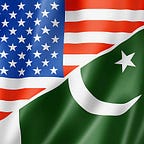4.1
Prior to this lesson, I assumed religious freedom meant just that and no more. Simply, that it was that everybody has the freedom to practice their religion. However, after this lesson I learned that religious freedom of one group, can infringe or oppress the freedoms and liberties of another group. I believe this assumption came from media. Whenever there is a politician running their political campaign, they always promise “religious freedom for all” and “no discrimination”, so after hearing this you would think it meant total freedom, but that is not the case. The most prominent example in the United States is that Christian holidays are much more recognized than other holidays, and as a result other holidays do not get their due respect, since there are limited days that can be observed in a high functioning space. So, holidays of most Eastern religions are not as recognized and celebrated because of this. And despite the United States not having an official religion, the Christian calendar is the calendar that is most heavily followed. In addition, many of the laws are also based off religious jurisprudence. For example, homosexual marriage was just legalized recently, and before then the homosexual community was always under scrutiny and were the oppressed sect. What I found most interesting about this was that who decides these rules and which religious viewings to follow? Its the people in authority, the people in power. Those individuals who get this powerful position are able to manipulate the way religion is expressed and how religion is practiced in the countries, which in many ways changes “the religion”, at least in the way we have come to know the term over the last few weeks.
#IntroRelUH
